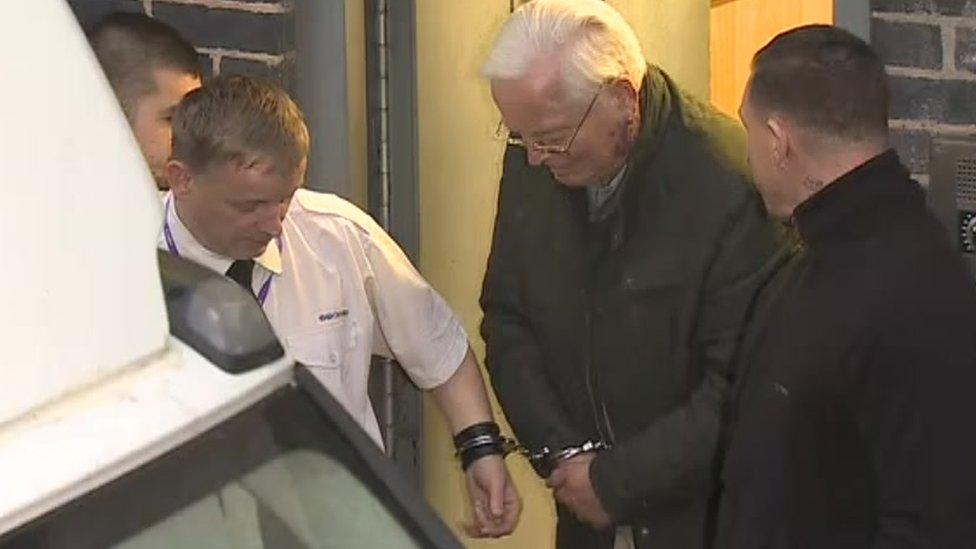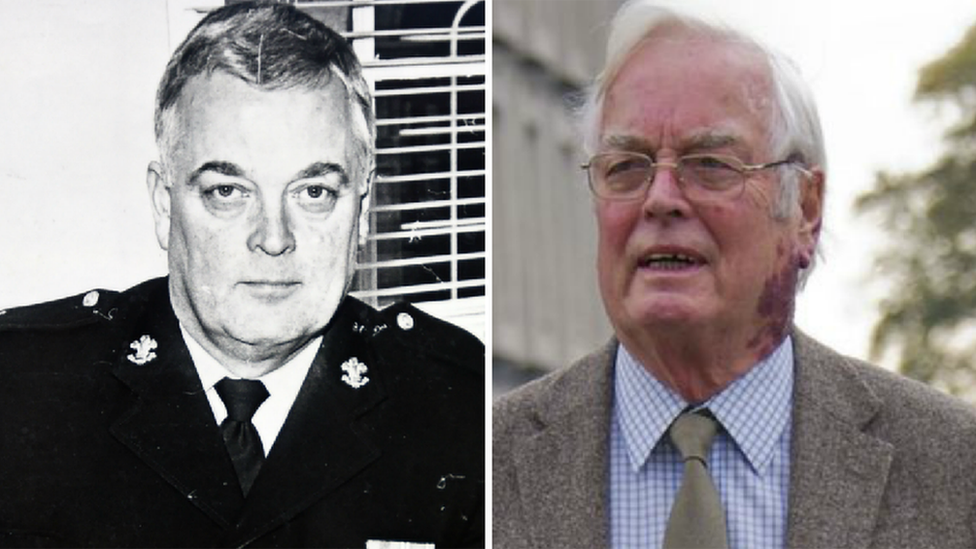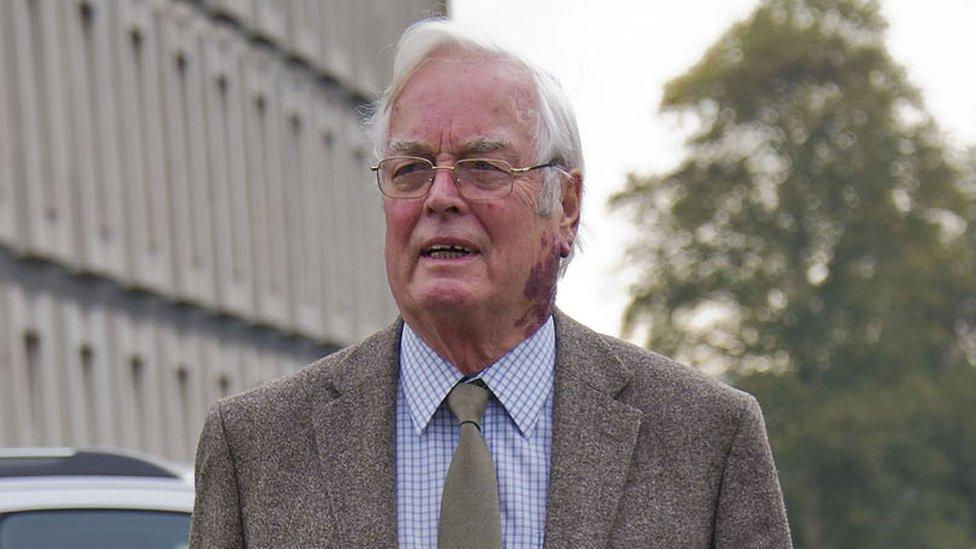Gordon Anglesea: Jailed paedophile's wife not told he was ill
- Published

Gordon Anglesea died the month after starting a 12-year sentence for child abuse
The wife of a jailed paedophile was not told he had been hospitalised until three days afterwards, a report into his death has found.
Former North Wales Police superintendent Gordon Anglesea died in December 2016 while he was a prisoner at HMP Rye Hill in Warwickshire.
The 79-year-old, from Colwyn Bay, Conwy, should have been referred to a GP earlier, the report said.
The prison said it had "reviewed our procedures around informing families".
The Prisons and Probabtion Ombudsman report, external was published on Thursday.
Nigel Newcomen, the author of the report, said: "I am concerned that the prison sent Mr Anglesea to hospital in an emergency ambulance, but did not make contact with his wife until three days later."

Gordon Anglesea was arrested in 2013 as part of the National Crime Agency's Operation Pallial
Prison rules require directors to inform a prisoner's spouse or next of kin when a prisoner becomes seriously ill.
Mr Newcomen also said the use of restraints when Anglesea was in hospital was "not justified by an appropriate risk assessment which took into account Mr Anglesea's health".
He added: "It is disappointing that once again I have to draw the prison's attention to their legal responsibility to properly consider the implications of restraining a very ill, elderly man with limited mobility."
The report found Anglesea should have been referred to a GP earlier but added a formal diagnosis and earlier hospital admission would not have affected the outcome.
He was taken to University Hospitals Coventry and Warwickshire on 7 December 2016 and died just over a week later on 15 December.
An inquest into his death found he died of natural causes following multi-organ failure and pneumonia.
Peter Small, director of Rye Hill prison, said: "In line with the Prison and Probation Ombudsman's recommendations, we have reviewed our procedures around restraint and informing families when prisoners becoming seriously ill while in hospital."
- Published2 May 2018

- Published16 December 2016

- Published15 December 2016

- Published18 November 2016

- Published4 November 2016

- Published21 October 2016
